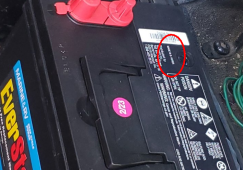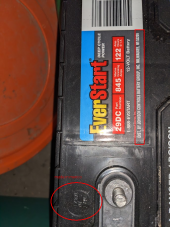Hopefully OP is still watching this? I feel like it got a little mean for a second!
When i first went off-grid i had 5kw of panels and 4x 24DC everstarts. Then i hooked up the other 5kw of solar, so 10kw of solar on those group 24 marine batteries. Then i wanted to change my golf cart from 24v to 48v (and parallel it to the house pack! lol) so i put those group 24s in there and replaced them with 4x 29DCs and ran that way for a while.
Just because you have 10kw of panel doesnt mean you are trying to shove 10kw of charge through a group 29 straw. That's up to your settings. I don't even think it's a patently bad idea unless you ARENT using anywhere near 10kw when the sun is up, but you ARE using more than your batteries can provide when the sun is down. THEN it's 'inherently bad design choices'. In my case i ran ~4kw of AC during the day on top of all the other normal living stuff including a 4500w drier, but i only ran ~2kwh of window unit AC and a refrigerator overnight. That worked ok and i don't really think it was stupid, just a stepping stone. Panels aren't getting any cheaper but batteries have either stayed the same (FLA) or gone down (lifepo4) the entire time i've been doing this, so buying the panels first and the batteries later makes some sense from that perspective, especially when your house battery you're 'abusing' has all of $400 wrapped up in it. I could light $400 on fire and have it be a better financial decision for me than for somebody else to spend $8 at Starbucks, none of that is a fixed black and white thing.
I am super happy with my Walmart marine batteries and will stick them anywhere they will fit. Car, RV, golf cart, house, whatever. The price is right, the reliability is good, the ease of exchange if needed is honestly best in the business, at least for a Joe Blow retail customer. You really can't do better than this unless you're in some sort of business relationship with a battery vendor who's giving you wholesale pricing and a back-scratching exchange policy. Yeah they're not true deep cycle, not a lifepo4 but for what they are they're as good as it gets.





